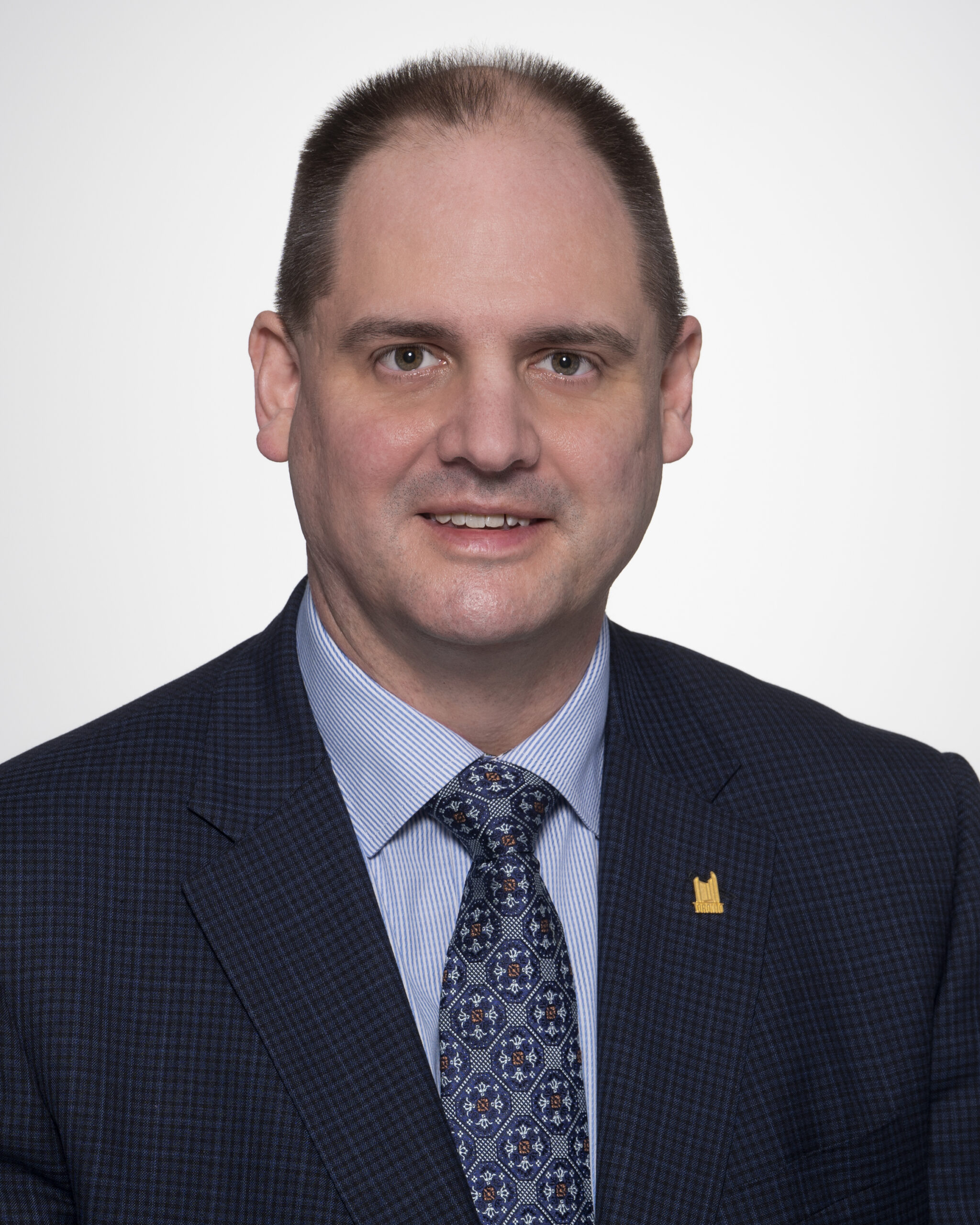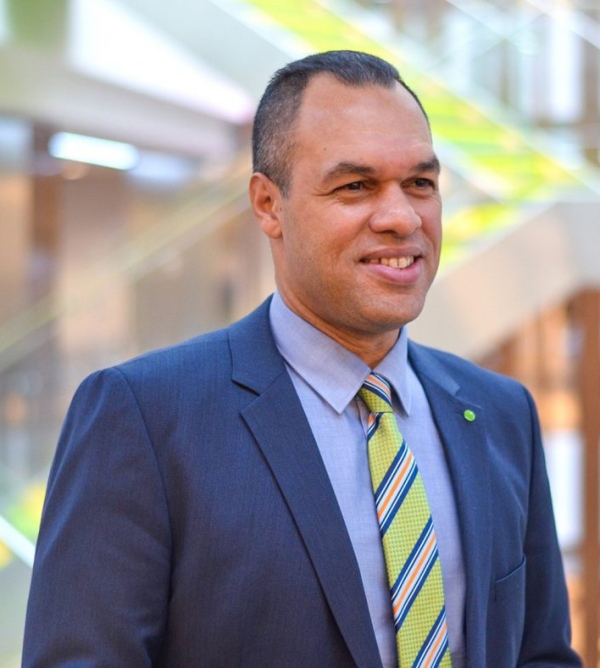Featured Guests
You’ll find this guest among our growing roll of Urban Champions.
-

Andre Corbould
City Manager, Edmonton
-

Cathie O’Toole
Chief Administrative Officer, Halifax Regional Municipality
-

Paul Johnson
City Manager, City of Toronto
-

Peter Sloly
Former Chief of Police, City of Ottawa
Despite challenging and financial governance arrangements, local solutions are being incubated constantly in Canadian communities all the time, but we lack the kinds of connective tissue we need to effectively plan and implement across municipal boundaries and sometimes competing jurisdictions. How can we pursue place-based policy and program strategies that better serve our urban communities and regions and therefore the country– more effectively? What are the models we need to learn from, adapt and adopt?
Panel Transcript
Peter Sloly We’ve got a great panel here, three great cities that I’ve visited many times and love dearly. You’ve got the city managers from Halifax- Cathie O’Toole, from Toronto, my old hometown. Paul Johnson, formerly from Hamilton as well, which was sort of a second hometown before Ottawa became my bane of residence. And then last but not least, Andre Corbould from Edmonton. I promise to start you off with a relatively easy one … Tell us about a place based example from your experience. Doesn’t actually have to be from a jurisdiction, from your lived experience where you felt made a difference and potentially made a difference not just locally, but nationally. Cathie, you want to kick us off?
Cathie O’Toole Sure. And there’s a few place based, I think, examples that Halifax could choose. I’m going to pick one that I was intimately involved with, and that was the creation of Canada’s first regional water, wastewater and stormwater utility. And, you know, the success associated with that is that Halifax Water is now an internationally recognized utility. But the benefit is that it’s taking a regional approach to building critical infrastructure. Took a lot of burden off the municipal tax rate and has enabled us to move forward in a way that, if it hadn’t occurred, you know, would never have happened. And it was because of collaboration.
Peter Sloly To come back to that concept of collaboration and how much that is a priority in these successful projects. Paul, over to you ….
Paul Johnson So hands down for me, you know, 2004, a real step forward in the province of Ontario and in the community I was in in Hamilton around early child development, and that was the start of the Best Start initiative in Ontario. It brought together people under the premise that we were going to look at how you could have community based centers of excellence and providing service for early child development, how they would be strongly linked to schools which are so critical from a place based perspective, but follow under a a framework and a pedagogy that would be driven provincially and really become another tier as important as elementary and secondary education for children pre prenatal to age six and their caregivers. And why was important is it was an initiative that funded first of all collaboration which we never see. We’re asked to collaborate and then we’re asked to find the resources to collaborate. And it funded collaboration amongst community providers, amongst educators, amongst health care providers. It encouraged communities to reach out across each other, sometimes done in an exercise of making sure there was consistency and making sure that we were being the most effective in the way we provided early child services, but also to learn about the differences in rural and urban and suburban areas. And it funded capacity building. And I know in Hamilton, our indigenous child care and Headstart provider programs would not have been able to expand to where they are today had they not had that investment. And I use it as an example because as we talk about the challenges we’re facing now, required reading should be the work of the late Dr. Fraser Mustard, Clyde Herdsman, James Heckman around the importance of investment in the early years because the links around the early years and brain development to mental health issues and physical health issues later in life is not a discussion point. It’s based in science. And so as we continue to deal with the present day, what we’re dealing with, we need to consider also how we’re investing in our newest and youngest residents in our communities.
Peter Sloly Excellent. Well, thanks so much. We’ve got a strong sense of collaboration. The first two, not that you need to follow in the in that, Andre, but I’m interested in what you’ve experienced. You’ve had a remarkable career. Armed forces, Deputy minister, city manager. Where are you going to pull from?
Andre Corbould Yeah, well, I’m going to pull from the recent one on on community safety and wellbeing. We were uncoordinated and UN collaborative and after what I thought was a height of tension on community safety after George Floyd was murdered and the pandemic and all the other things that happened around that time, we had to get organized and we did it and we created a community driven, community led community safety and wellbeing strategy. It’s a seven pillar strategy that leads with anti-racism and truth and reconciliation. And why it was so successful is that it was community based community involved and everybody has lots of stuff to work out in the details, but everybody agrees with the Seven. That we have and what we’ve set out on and the architecture. The architect of that strategy is Salema Ibrahim. She’s our city chief of staff. She’s here if you want to get it. But what was great and successful is we put resources to the strategy and everybody has a map, know where to go, and everybody knows in Edmonton, if you want to work on this and it’s got to be one of the pillars, Wolf. And it will help you, will support you, and everybody works together on it.
Peter Sloly So it’s an excellent. Okay, just put your hand up or stand up there. She has outstanding work out in Edmonton. I’ve been on the ground to see it. Fantastic. Where do you look for inspiration? Andre, maybe we’ll start with you and then we’ll work back to the East Coast. Is there a city? Is there a region? Is there a country? Is there an industry sector where you’re seeing, as you described, those elements, but on a scale consistently done well, where do you look for inspiration?
Andre Corbould Actually, I take my inspiration from my career in the armed forces. I spent 28 years doing mostly country building and in conflict or post-conflict nations around the world, including Afghanistan and Bosnia and Iraq and Kuwait and all these places. And the reason I take inspiration is the amazing people I worked with in all those countries and more recently, three tours in Afghanistan to see the resilience and the agility of people when things are really, really bad. We have it really, really good in Edmonton and Canada. Despite all of our challenges. We have it really, really good. And I think we need to be inspired by people who don’t have the same opportunities and luxuries and and lives we have. And I think we owe it to many of them and many of them who become Canadian as newcomer newcomers to be inspired by what they can overcome and what they can do. And that’s what I look to all the time. And, you know, the best things that happened in my time in Afghanistan was when the president, the governor of the province and the mayor got in a room, agreed, collaborated and got things done. That’s when good things happen. And I wish we would see that more. We’re here.
Peter Sloly It’s great. There was no throat punching involved in that one, was there? No, just channeling my inner Marin and.
Andre Corbould Lots of tea drinking. Yeah.
Peter Sloly My two tours of duty in Kosovo that showed me the same sort of inspiration. I appreciate that very much, Paul, But what gets you excited in the morning before going into your 12 hour day?
Paul Johnson You know, I gather inspiration from everybody I come across in the city of Toronto as you get out and talk to people about the work that they’re doing. And that sounds a bit cliche, but it’s true. It’s through those conversations that in the pandemic we were able to create the types of community networks and ambassador programs that ensured we were able to penetrate from a vaccine perspective into communities that were deeply affected in the past with institutional responses and needed though to be brought into that. That’s translated itself into things like our Toronto Community Crisis Service, which is, you know, now going to roll out across the entire city of Toronto. It is a true diversion program through 311211, as well as 911. And it is demonstrating that by listening to people who do this work each and every day, we can then get together and figure out, well, how will we systemically fix this? One of the things coming out of the pandemic is to say, well, that Ambassador program in Toronto in many communities had it about how we we improved vaccination rates among certain populations. How do we do that across a community health perspective? Why would we shut that down now that the crisis part of the pandemic is over? Why wouldn’t we build on that and actually see how we can deal with some of the other social determinants of health? And so those conversations that often come out of a challenge, they can come out of, you know, really difficult circumstances. Toronto’s had to have conversations about how the interactions, particularly around mental health, do not take place exclusively with the members of the Toronto Police Service. But the way we’ve been able to frame that conversation, to not be about us versus them, but to be about the better way that we serve Torontonians is actually what inspires me most. It’s pretty easy to say, Well, we’ll set up an alternative that’s about you not doing it right and us doing it right. And the answer to that is we’ll both fail. It is that combined effort to make sure that we serve our communities well. And so that inspiration is is what drives me each and every day. And it actually is what’s driving better place based results across our country.
Peter Sloly Excellent. Well, thanks, Cathie.
Cathie O’Toole My answer is a little bit similar. My inspiration is the public servants, the community volunteers and some of the business leaders that I interact with every day and seeing how in times of great crisis, they mobilize and work together, whether it was how we responded to Covid 19 or. This year in particular, Halifax has had a challenge. We’ve had the worst wildfire the province has ever seen, the largest mass evacuation that’s ever been done. And we’ve had floods. We’ve had a hurricane. And seeing how people pull together and collaborate in the face of those challenges, we have a community that is becoming increasingly a tight knit, collaborative network. And, you know, for instance, the head of church here, Chamber of Commerce is here today. The head of some of our business improvement districts are here today. That’s because they care so deeply about the success of the city. And, you know, big, you know, shout out that they care enough to come here and participate in these events.
Peter Sloly Excellent. See if Mary’s got any questions on the floor. But just as she’s coming up, I usually don’t do an oral question, but I’m going to deliberately do one. We heard a lot of discussion in the panels earlier on about funding, funding funding and where it’s coming from. So deliberately challenging you if you had a choice between more money and better partnerships in order to produce sustainable, meaningful success in place based approaches, which would you choose more money for? Better partnerships, Better collaboration? Let’s start here. Andre And then.
Andre Corbould I think for me, it’s partnerships. And and we see this in some of the programs we’ve run. It’s that lack of coordination. The more Kuwait coordinated we are, the better we can use the funds that, you know, all the taxpayers provide at all levels of government. So for me, it’s partnerships, hands down.
Peter Sloly So thank you.
Paul Johnson Paul Yeah, I agree. And if we can get the structures right and we can get those partnerships right, we won’t have to worry as much about fighting for the money. And the other thing I’ll say right now, it is really hard if someone wants to actually say, So what’s the dollar figure in the city of Toronto to solve X issue or Y issue? I don’t know that I’d be able to say it Y because I have no idea all of the component parts that would need to be part of ultimately a resourcing solution for that. So if it really was a money first issue, we would have that answer. And I know sometimes the answer is we do need more. And I would agree with that. But until we get our we spend a bit more time on that structural partnership. Who does what exercise? It will always be the while we could use a bit more, we need a bit more. And I think if we go back to the other way, we’ll actually get a better answer.
Peter Sloly Cathie, you’ve got a CPA background, so I know money’s important, but you did talk about collaboration. Which way are you going to go on this one?
Cathie O’Toole Well, this is hard because I think Halifax gets less transfers from other levels of government than any other city in Canada. We work in a very unique environment, and we’re we’re used to doing less with more. And we’re innovative in terms of, you know, finding ways to finance our own challenges. And we’ve got a lot of smart accounts. So I’m not going to say money. I’m going to say partnerships. And I think that, you know, partnerships, but finding the right partners is critical. People who are going to come into a room and leave their ego at the door and leave their political background or aspirations out the door to some extent and be solutions oriented and objective and fair.
Andre Corbould Now, can I just cut in here on behalf of the three of us, and please say that if any of you go back and tell our councils that we said we didn’t need any more money, we’re going to be in a lot of trouble.
Peter Sloly So don’t worry. It’s been like straight. You’re okay.
Andre Corbould Shapes are important, but.
Peter Sloly All right. Outstanding. Audrey Thank you.
Cathie O’Toole Marion Well, it’s interesting. The questions from the floor kind of weave into where you were just going. Peter And a comment generally about a concern about how we have a narrative in Canada where cities whine a lot about not having enough money and is that getting old? That’s a question that came from the floor. But here’s a related question, and this is where we want all the social media people to stand down. Let’s just do it. I know we’re online, but let’s just try to have a see where these guys are going to deal. What do you do when you imagine your councils are doing something dumb?
Peter Sloly Where am I now?
Cathie O’Toole And you know what the right thing to do is. What do you do?
Peter Sloly Who wants to wade into those waters first?
Cathie O’Toole I’ll take that one. If anybody who knows my background, you’ll know I’ve been around for about 25 years. I was with the city for ten years, then went over to the utility for 11 years, and now I’m back in the city as the CSO CEO. The first time I encountered that situation, you know, I made a principled decision to escalate an issue and withdraw, you know, and take a career change just because I didn’t didn’t want to work with an organization with leadership that didn’t align with my personal values. So I think CEOs have an obligation to. At their best. Professional advice towards council needs to reflect that and respect the decisions that council makes and support it. But at the end of the day, as professionals, we also have to live to our own values and demonstrate that.
Peter Sloly Thank you, Cathie. Anybody else? Andrea. Thank you.
Andre Corbould Yeah, I guess I would agree with Cathie if you have to get there. What I try to do first is seek to understand because I think the first thing to understand is if they’re doing something that you don’t think is wise, and I’ll put it that way. Mary, you know, remember who they’re representing. Maybe they’re getting told by a lot of the people elected them to do something in the in the you know, in a way. So I do think we have to seek to understand. I also think how I’ve gotten through some of those circumstances is just presenting data. Maybe there was a maybe we didn’t had not presented the right data in a way that they didn’t understand. And so but yeah, ultimately, if you get to the point where Cathie expressed, you might have to get there. But yeah, I mean, seek to understand and try to help them with information.
Peter Sloly So thanks, Audrey. Paul.
Paul Johnson I just tell him the halt. Are you hungry? Angry, Lonely or tired? Because that’s probably why you’re headed in this direction. And then we can get some good data in your hands and we can start to talk about the right way to go. I mean, that’s a little bit of a fun answer. But I think the reality is. All right, I haven’t really experienced in two municipalities where really I mean, they may seem dumb to individuals. And I think we have to be careful sometimes that we don’t always project an individual piece. And I’m not talking about the times where it gets right up against integrity. It gets right up against personal values and all that. But generally speaking, you know, the question to the first panel was excellent. What do we do really well? I mean, Canadians are well governed. We’re actually seen around the world as a really stable place of government. And I actually think that by and large, the decisions made, although sometimes they may skew a little bit towards what’s happening in the local newspaper, in the headlines, they usually tend to come back to what is a balanced approach. It may not be the way Paul Johnson would have said it, and maybe we can provide as as the public service some advice to get people to where they need to go. But in those real moments of where things are drifting into into what I call never Neverland, it’s halt. Are you hungry? Are you angry? Are you lonely? Are you tired? And they usually answer yes to 3 or 4 of them. I say, Well, maybe we should carry this on to the next council and have the discussion then.
Cathie O’Toole I think this group is verging into the hungry, lonely, tired category themselves. But I think where this was coming from was some folks asking, are we taking enough responsibility at the local level for bad decisions? So sprawl is, I think, what people are getting at that municipal governments have over time and municipal councils over time have been influenced by Nimby. They’ve not intensified their neighborhoods. They they need the tax base. And so they continue to annex and create and now you’re reaping the benefits. So I think that’s the illustration of where council decision making may have been at odds, at what your staff may have felt was the right thing to do. That is just not happening.
Paul Johnson And those things happen. And then you see communities stepping forward and changing that. And so if you look at what’s happening policy wise across many cities and not all cities are the same, but in cities where it makes sense to to make changes, there are things occurring. So I can talk about, you know, my own community in Toronto now, the policy changes on housing that are happening in the city of Toronto are things that people have said, you know, it’s always the way this will never happen in Toronto, will never see the day. Well, the never day has come. I don’t ever agree with never. But there are people saying, wow, we have moved the needle on policy and it’s because we have to. And so then there is that connection point. And that’s where the public service for all those years where it may have been. I am not sure about this. Are we ready? Are we ready with the way to quickly move into the space when it’s opened? And when I speak to our folks about quite often in Toronto is be ready. What if they say yes? And when they say yes, are we ready with Here’s how we can get you strategically, professionally and in a coordinated way to where you need to go? Because if not, then the nervousness will set in and we can have reversal of some of those decisions. And we’ve seen some of that happen on occasion. And I’m sure all three of us.
Andre Corbould Yeah. And I would say know we’re here to talk about unraveling the Gordian knot. What I get sick and tired about Mary is people whining about the Gordian knot. Like we got to get to unraveling it, deal with it. And and so I don’t like the whining from any order of government, including the municipal government. We just got to get doing things. And I think we can. I mean, we are very proud in Edmonton of having just approved our zoning bylaw renewal, which will come into effect in January. We had already gotten rid of like parking minimums and stuff a long time ago, and we’re moving to the next level. We are de complicating that that space and the zoning bylaw renewal. That’s a great example of unraveling the Gordian knot and that’s what we’re doing. So we got to stop whining and just get on with fixing the problems.
Peter Sloly When Mary asked me to do the session, she gave me the title. I saw Gordian Knot. I had to remind myself it wasn’t unraveled. It was just chopped by a great big sword. That isn’t an option in the toolkit of city managers. So put on your hometown hat, not able to try a hometown hat. Walk us through a space that isn’t in the headlines that you embrace, that your community embraces. That is something magical and local, but is having a radiating impact beyond the examples you’ve talked before. Just picture that space and describe it to us in a couple of minutes each and help us to fall into that space and then be inspired by that to create the spaces that we represent from across this room.
Andre Corbould I can start with our river valley. We have the nicest river valley in the world. I think in terms of park space, we just bought another, I don’t know, 180 hectares of of park. We are building out that space in the beautiful city of Edmonton and it’s going really well and it’s a great success and that is our most treasured resource that we always invest in and people love it. So yeah, great.
Peter Sloly Thank you for that. Paula. Cathie.
Paul Johnson For me, it’s the work that’s happening in neighborhoods and, you know, not unique to Toronto, but a lot of communities have embraced a neighborhood level work. And if you see some of the things that do bubble up to the headline level at the city of Toronto, they’ve started in neighborhoods. And I can trace some of the things now as I learn more about the roots of some of these really incredible things that are going on, including, you know, what I’ve mentioned our crisis community service. It’s traced to neighborhood work that was trying to do some things a little bit differently. When I think about ways that communities are dealing with violence across the city of Toronto, you can trace it to community leadership that happens at that neighborhood level. And so below the surface of the big policy decisions and the big strategic initiatives that that we push forward, it’s these wonderful examples of how people are coming together at that neighborhood level. And I think as we look at housing from as complete continuum, not talking about at the high level of programs and huge amounts of funding, but when we actually get to the delivery level, that’s where it’s happening. And one of the most exciting things I’ve seen is our partnership with UAH. And, you know, Chris Murray, our former city manager, is here and he really structured these conversations. As said, it is about health, it’s about the city, it’s about the community coming together to provide things like housing and then all the supports that make housing a home so we can actually get on to it. And that’s happening at the local level, not at at some boardroom level.
Cathie O’Toole One of the spaces that I find is inspirational and giving me hope is the work being done on climate change adaptation and mitigation in Halifax. You know, there was a Halifax 2050 plan approved three years ago. There has been a climate action tax put in place within the municipality to fund it. And most recently this year, CEOs of some of the major organizations within the municipality came together to sign a climate action charter. So I think there’s a real momentum on climate that’s beginning to happen in Halifax. That is exciting.
Peter Sloly Excellent to hear. Three minutes between a roomful and a wonderful buffet table over there. Mary, anything else from the floor? I’ve got one more question lined up, but anything else from the floor? No, please.
Cathie O’Toole And I’m getting to the point where I can recognize your handwriting. Those of you that are sending in repeated calls to send a question about data. And are we using data as effectively as we could be in terms of influencing our own municipal policies, but also working with partners of the province in effect? Do we have the tools we need data wise?
Paul Johnson No.
Andre Corbould No. But yeah, I would say we don’t have all the tools data wise we need, but we’re working on it. But why? It’s more most important. Mary I think it’s, you know, we were having a huge dispute with our province about shelter space. And and once we started chasing after the data and we demonstrated the data, we got exactly on the same page with our province on shelter space. And so that has been a monumental shift in terms of collaborating between City of Edmonton and the province of Alberta. We are on the same page. We are working together now on the same outcomes and the only way we got there is from data. So that’s why it’s so important.
Cathie O’Toole I would agree with. No, but the tools and the systems exist. It’s the data sharing arrangements that I think don’t exist.
Paul Johnson And I’ll just echo, you know, Andre’s comments. If you think about what happened this week in Toronto and a new structured relationship with the province of Ontario, that all came about because of a lot of work on building data. So we don’t have them readily at hand. It took Toronto about a year to produce what it was, a suite of information and data that allowed us not to have a philosophical or ideological conversation about how we might have a new relationship with the province of Ontario, but one that actually got at some of the unique challenges that the Toronto faces. And so when we can get it right, it really works. The problem is we don’t have enough of those things at our fingertips where we can use it quickly.
Peter Sloly And to just put a thread between all of you. Dale McPhee was the Prince Albert chief of police back in 2012, came to Toronto to give a presentation on integrated human services that required data sharing and had to get over the privacy legislation. Most people didn’t understand the privacy legislation, so we assumed we couldn’t do it. But when Dr. Cavoukian came in and said, No, you can actually do this with some risk mitigation, the information flowed, the partnerships grew, the trust came into place, the pilot projects worked. And we could scale things from Prince Albert to Edmonton. Certainly safe to runs on a data now, a data sharing platform with the federal government that has opened up new data sources for them. And they’re knocking out of the park in terms of an altar to police service delivery unless familiar with Halifax. But just hearing the passion and compassion in your voice, Cathy tells me that great things are happening out there. The data will flow because you’ve got the right people with the right heart. People matter. Places matter. Partnerships maybe matter the most in this day and age. I want to thank you again for having us up here, and I hope this was a valuable session.



